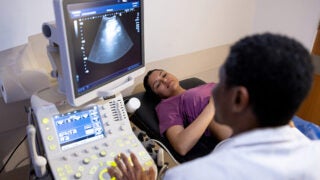Rats fed a diet full of fat and sugar in adolescence suffered memory impairment, USC researchers found. The study reinforces the important link between the gut and the brain.
Diet
News Listing
A new USC study suggests that interventions in diet during pregnancy could help address this health disparity faced by Latinas.
A USC study shows how cycles of a fasting-mimicking diet reduce insulin resistance, liver fat, immune system aging and biological age in clinical trial patients.
Researchers from the Keck School of Medicine of USC studied how dietary patterns relate to levels of PFAS in the body over time.
A USC study suggests that changing labels of vegan food to focus on health and environmental benefits may encourage people to eat less red meat and dairy.
How many fast-food joints you come across throughout your day has a lot to do with your health, says Abigail Horn of USC’s Information Sciences Institute.
Keck Medicine of USC investigates whether a nutritional intervention could curb the condition, which so far has no cure.
A USC study identifies the strongest environmental predictor of childhood and adolescent obesity.
USC scholars explain what foods we should be eating to live a longer and healthier life. Good news: Carbs are definitely on this menu.
The risk of liver damage is highest for people who are obese or have diabetes, a Keck School of Medicine of USC study found.










